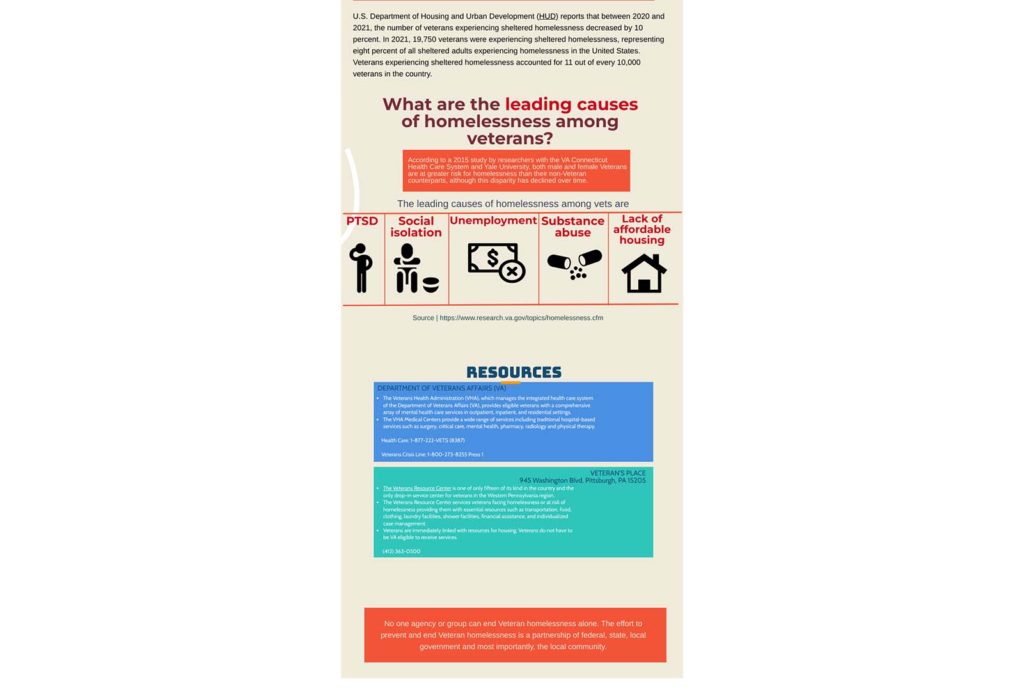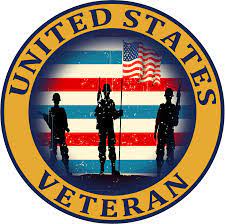America’s Veteran’s Struggle
Veterans are overrepresented among the homeless population in the United States. Since 2009, however, federally funding programs for veterans and their health care have reduced their numbers on the street and in temporary shelters. Here is what we found about them.

______________________________________________________________________
Dave Anderson’s Story
Photo by: Nikki Novick
Story By: Nikki Novick
Former Navy serviceman and current homeless veteran, David Anderson recalls the terror he felt sitting on a warship just off the coast of Lebanon during the Iran and Iraq war.
“Right now, I’m filing a claim for PTSD, because I wake up in the middle of the night punching the walls. I have night terrors from my time in battle. I never knew if the next explosion I heard would be my last,” said David Anderson.
The Iran-Iraq War was one of the largest and longest conventional interstate wars since the Korean War ended in 1953. A half million lives were lost and perhaps another million were injured.
Anderson completed two 7-month tours of duty off the coast of Lebanon after enlisting in the Navy in 1983.
The PTSD that Anderson suffers, combined with the sudden and tragic loss of a child, led him to become reliant on alcohol. Then, he became homeless. His addiction was soon followed by homelessness.
However, when things got really hard for him, he fell back on the core skills that he learned in the military.
“Leadership, loyalty and discipline have stuck with me,” said Anderson
He attributes his recent stretch of sobriety to those skills.
Thanks to the Department of Veterans Affairs, Anderson received full rehabilitation care from the Domiciliary Care Program in Aspinwall, PA. “Coming out of there, I’ve been clean for seven months,” he explained, “I feel good about myself now.”
With the help of Veterans Place on Washington Boulevard, he was provided with clothing, food, and a place to stay each night until the Veterans Leadership Program was able to offer him permanent housing, this spring.
Anderson is seeking employment and applying to jobs with the help of Veterans Place. He said he deeply appreciates the help provided to him from local veterans services that allowed him to get back on his feet, obtain sobriety and, he hopes, a happier life.
____________________________
Rob Hamilton’s Story:
Photo: compliments of the Hamilton family
How he overcame poverty and homelessness and now helps other lost Veterans find their way.
Story by: Caitlin Jefferson
Rob Hamilton pulled himself out of a gripping cycle of generational homelessness and drug addiction and has since devoted his career to saving other veterans who are experiencing similar hardship.
After a trauma-filled childhood took Hamilton to Florida, North Carolina, Missouri and even England, he knew that his instability throughout high school meant that college was not on his radar.
“For people like me, we either went to the military or found a job in construction,” Hamilton said.
Hamilton’s decision was the military. Considering that both of his brothers were serving active duty in Afghanistan and Iraq and the father that he barely knew had spent 22 years in the Air Force, Hamilton felt an obligation to take the military route.
“It was hard, but it was gratifying and challenging, mentally and physically,” said Hamilton. “I imagined all the movies I had seen with depictions of the military, but it was different for me because I wasn’t expecting the camaraderie.”
Hamilton’s time in the military was spent with the National Guard where he fortunately was not deployed into combat but he did learn to trust other people with his own life.
Hamilton’s personal struggles worsened upon receiving his discharge papers from the military. “I was set out for failure with no support and no real help,” said Hamilton. “You’re pretty much thrown in the trash once they have no use for you.”
Hamilton eventually found a place to live, but his use of drugs and alcohol, mixed with little support from others, soon cost him his apartment. He moved in with his mother, but his drug use continued. He resorted to couch surfing since his mother could not have him there anymore, and he looked for places where drug dealers were set up. Sleeping underneath bridges became his new shelter.
“I remember at one time I was sleeping upright in chairs at laundromats; it was horrible because I felt so worthless mentally and emotionally,” said Hamilton.
After getting clean and completing his Bachelor’s Degree at the University of Pittsburgh, a chance encounter at a Subway lead Hamilton to his career at Veteran’s Place where he has grown into the position of Executive Director.
“He was a Navy veteran and he spoke about what he did and it resonated with me,” said Hamilton. “It was like he was telling my story as he described how veterans came to them and it was in that moment I realized that was what I was supposed to do.”
Hamilton is now in his eighth year at Veteran’s Place. He spends his days encouraging other veterans to take the right steps towards recovery and is a living example of someone who has overcome mistakes.
Despite Hamilton’s many mistakes and an unhealthy childhood, his wife and two children now get the best of him as a father and a husband. He is working towards his Ph.D. in instructional leadership and management at Robert Morris University and looks forward to a bright future.
“You can come back from anything. So, don’t be afraid to make mistakes. In my case mine were pretty bad, money or power or prestige doesn’t mean anything to me. It’s that stuff on the inside that matters most,” Hamilton said.
_____________________________________________________________________

Shannon Hagy of Veteran’s Place
Listen to a podcast interview with Shannon Hagy of Veteran’s Place.
By: Mackenzie Philips
——————————————————————————————





